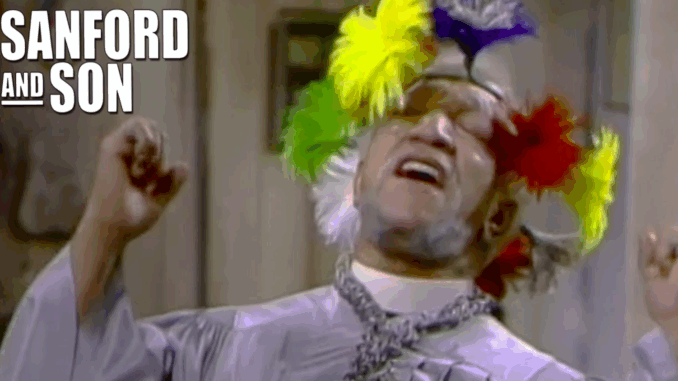
He Wasn’t Marching. He Was Mocking. And That Was Just As Powerful.
In the pantheon of American TV characters, Fred Sanford doesn’t wear a cape, doesn’t give speeches, and certainly doesn’t want to change the world. Yet somehow, this grumpy junk dealer from Watts, played by Redd Foxx, did just that.
He didn’t lead protests. He didn’t run for office. But with every insult, every scheme, every hand-to-chest “Elizabeth, I’m coming!”—he pushed American culture a little further toward truth.
More Than a Clown: Fred Sanford as Social Mirror
On the surface, Fred Sanford was a caricature: lazy, cheap, loud, meddling. But under that surface was an unspoken genius.
He was a working-class Black man running a business in 1970s Los Angeles. He talked back to cops. He mocked white politicians. He called out racism in a language the networks could barely censor—jokes.
Fred’s power wasn’t in moral clarity. It was in visibility.
At a time when most Black characters on television were deferential or invisible, Fred Sanford was loud. Unapologetic. And the star.
He Wasn’t “Woke,” But He Was Wide Awake

Fred Sanford never preached. But he didn’t have to. In the episode “Lamont Goes African,” when his son experiments with wearing traditional African clothing, Fred’s ridicule reflects both generational disconnect and deeper questions about Black identity.
He pushed back on change—not because he was blind to it, but because he was exhausted by it.
His character captured something rarely shown: an older Black man, worn by life, trying to survive in a system that never respected him. His humor was his shield. His sarcasm, his defense.
And America—white America especially—laughed without realizing it was being called out.
Laughter as Resistance
Sanford and Son aired from 1972 to 1977, in the wake of the civil rights movement, the Watts riots, and Vietnam. The country was fractured.
But millions tuned in every Friday night to watch Fred Sanford complain, flirt, bluff, and insult everyone around him.
They came for laughs. But what they got was something sneakier: subversion in a housecoat.
Fred Sanford was never meant to be a hero. But by simply existing, and refusing to soften, he became one anyway.